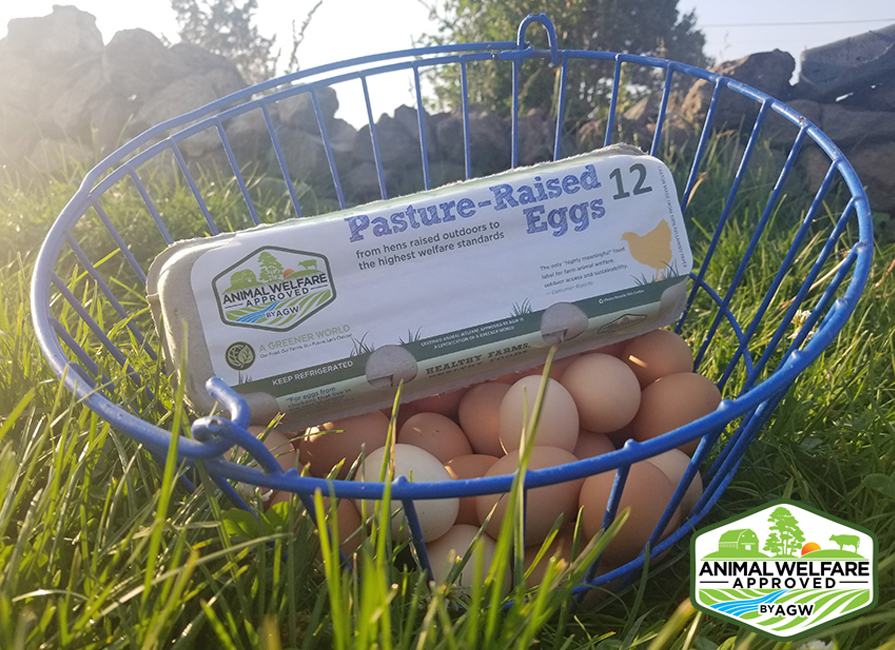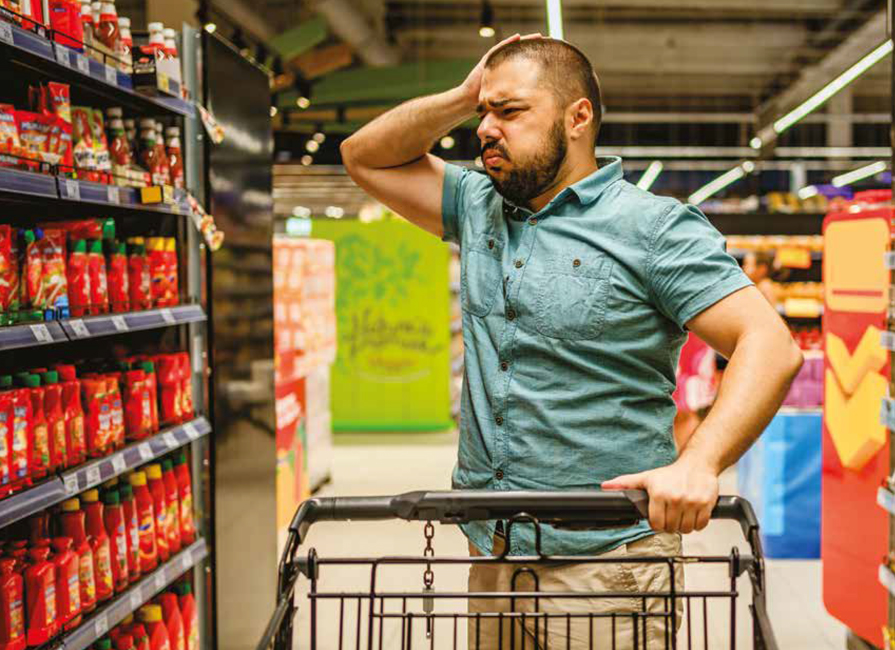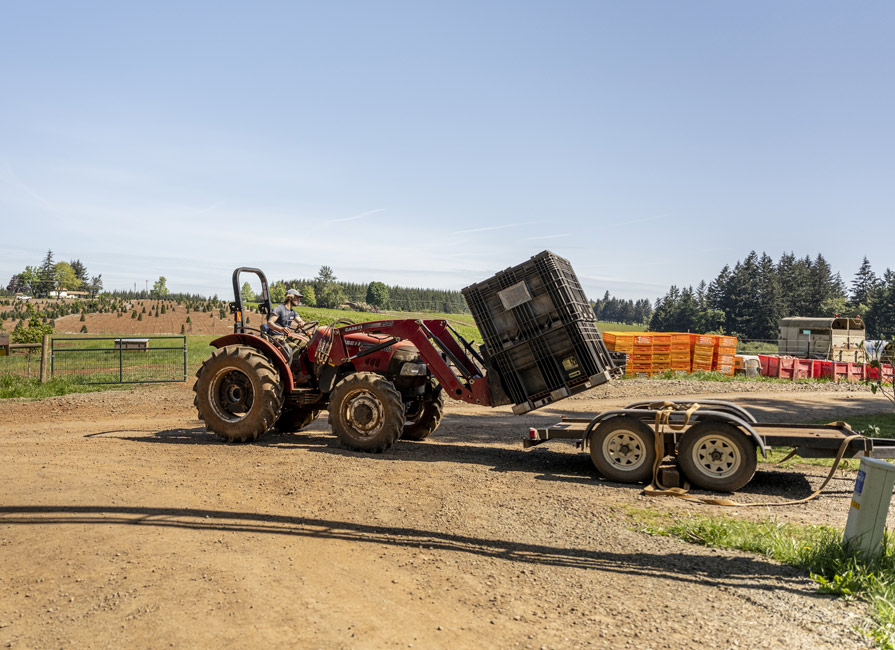One of the key attractions of our Certified Regenerative by AGW program is its practical…

What is “Pasture-Raised”?
What is “Pasture-Raised”?
Pasture-raised means an animal was raised on pasture. But heads up: it’s not always used honestly—we’ll explain later how to know when you can trust this claim. Not to be confused with pasteurized (the process of heating foods to kill germs), the term “pasture-raised” is usually talking about an animal raised for food, and you’ll find it as a label on meat, dairy and eggs from those animals.
Aren’t all farm animals raised on pasture?
No. While many of us grew up with tales of Old MacDonald and visions of farm animals happily roaming the countryside, most farm animals haven’t lived like this for 100 years. In our modern, industrial food system, the vast majority of farm animals live in extreme confinement, crowded in warehouses for their entire lives. They’re given routine antibiotics and undergo severe mutilations like beak-trimming or tail-docking to produce in these stressful and unhealthy conditions. This is why chicken costs $1.50/lb.—and why we have antibiotic resistance, aquatic dead zones and a health crisis of diet-related disease.
Less than 1% of farm animals are raised on pasture for their whole lives—but we can help you find them.
But why does it matter?
Animals raised humanely on pasture can produce meat, dairy and eggs that are better for us. When cows graze on green grass and healthy pastures, their milk has more vitamins and higher levels of cancer-fighting conjugated linoleic acid (CLA). When chickens scratch, peck and forage naturally, their eggs are tastier and more nutritious, with higher levels of Vitamin E, beta carotene and Omega-3 fatty acids. All of the wonderful grasses, herbs, flowers, bugs and the amazing variety of life in healthy pastures gets passed along the food chain up to us in the form of healthier food.
Which labels mean animals are REALLY pasture-raised?
This is where you have to do a little sleuthing—but we’re here to help! Modern food companies use a bewildering range of terms and claims to make you think their products are more environmentally sustainable than they are. We call this “greenwashing.” The problem is that while some of these claims legal definitions, most are completely unregulated and can easily lead to misunderstandings—or abuse. Even most of the regulated label claims aren’t even managed transparently. The reality is it is hard to know which food label claims you can trust—and which you should avoid.
Labels that really mean animals are pasture-raised are: Certified Animal Welfare Approved by AGW, Certified Grassfed by AGW, Certified Non-GMO by AGW and Certified Regenerative by AGW. While Certified Humane doesn’t require all animals to be pasture-raised label, they have an optional pasture-raised standard that some of their certified farms use. Note: Organic doesn’t mean pasture-raised. The most important factor here is third-party certification, meaning, someone independent actually came out to the farm and verified that the claims are true. This is what A Greener World does, and why people trust our labels. For more about the difference between audited vs. unaudited (or verified vs. unverified) claims, see our guide, Food Labels Exposed.
Sounds great—so how do I find pasture-raised foods?
Right here! We made a searchable online directory of AGW-certified products to make it as easy as possible. Find certified farms and products near you and online here: https://agreenerworld.org/directory/
Just checking: the package says “pasture-raised” but it’s not certified. Isn’t this better than nothing? Help! I’m just trying to do the best I can!
We totally understand—you’re not alone! It’s really tough to be confident you’re getting what you pay for when it comes to food. But it’s also not going to get any better if we reward misleading labels. So our advice is: if it’s not certified, don’t give the company your business. You may end up leaving the store with Certified Animal Welfare Approved by AGW butter and conventional cheese, but at least you didn’t pay a company a premium to lie to you. Remember, unless you choose food that has an independent third-party verification according to high-welfare standards, you’re probably buying industrially farmed animal products.
Thank you! How can I learn more and stay involved?
We are happy to help and glad to have you. For more information about food and farming, sign up for our email list and follow us on social media. We are here to help! We believe our own health is connected to the health of animals, the environment, and our wider community. Our goal is to be your go-to resource for food, farming and sustainability and help you find simple solutions based on your own interest so you can shop with your values.
Want to become a food label expert?
A Greener World’s (AGW) Food Labels Exposed publication was developed to help you navigate and decipher today’s food labels and restaurant menus, providing clear and factual definitions for over 100 of the most common claims and terms used for the production, marketing and labeling of meat, dairy, eggs and other farmed products. This guide will help you find out what is really going on behind the label, so you can make informed choices.


